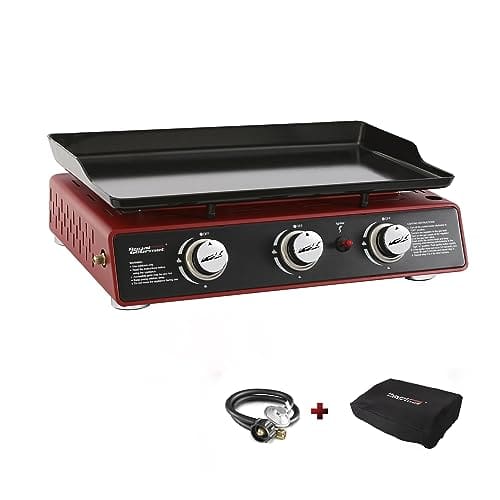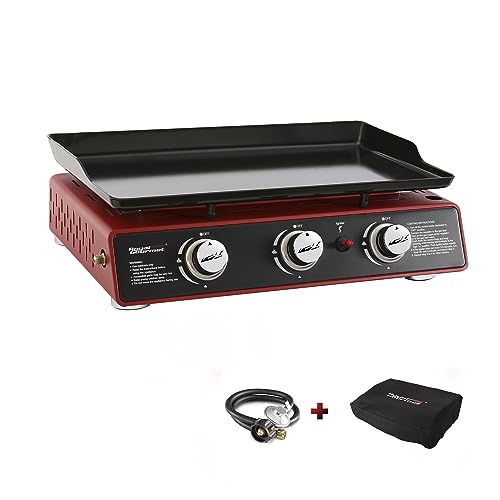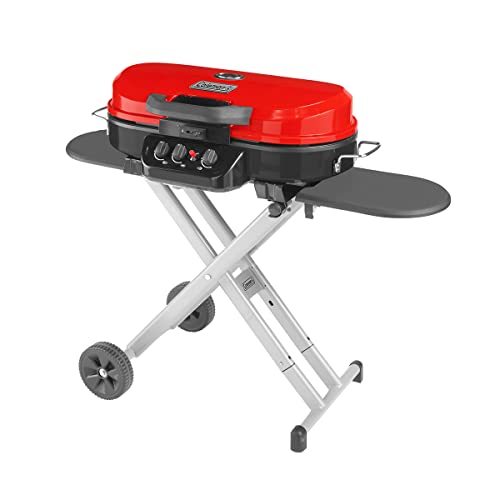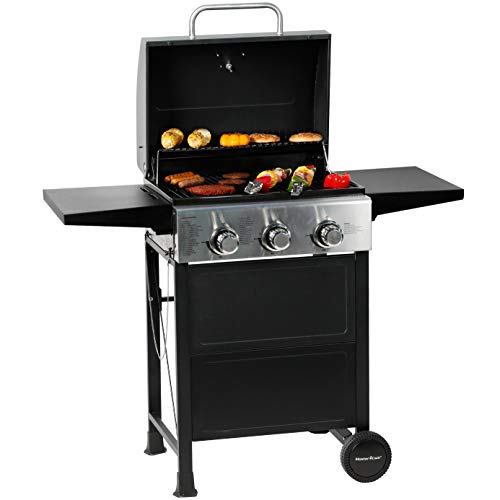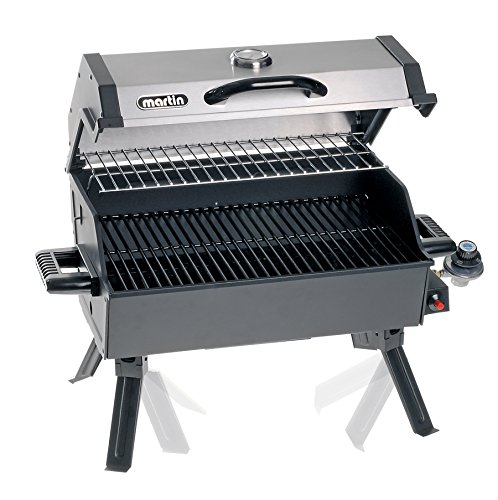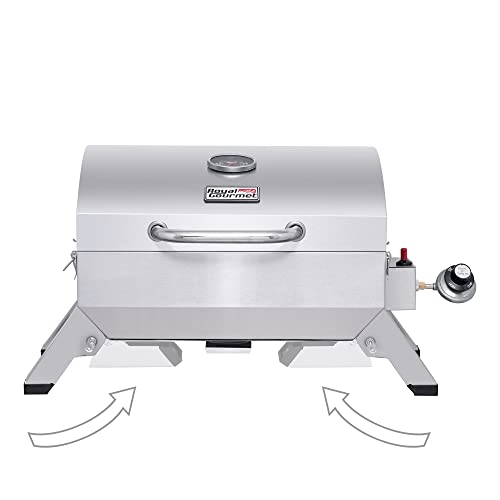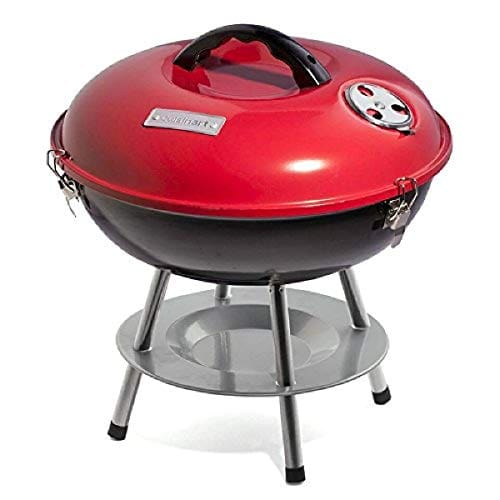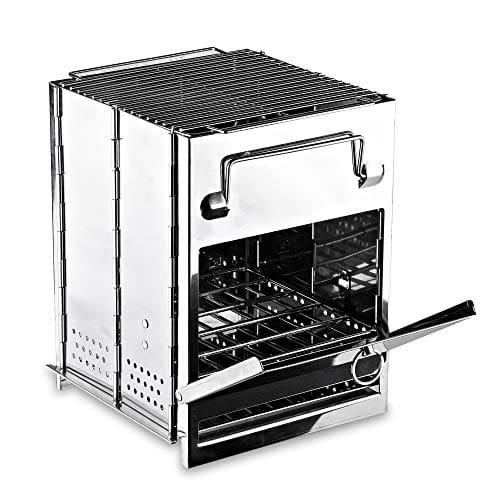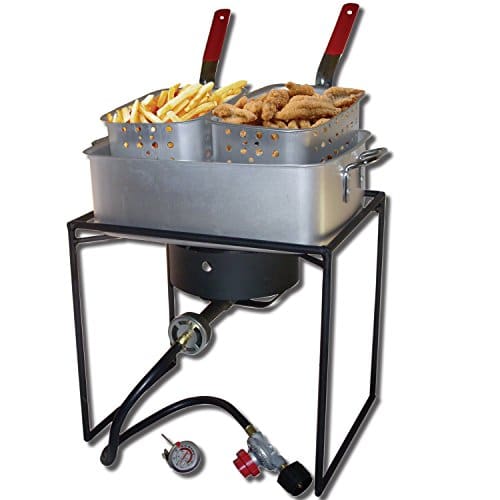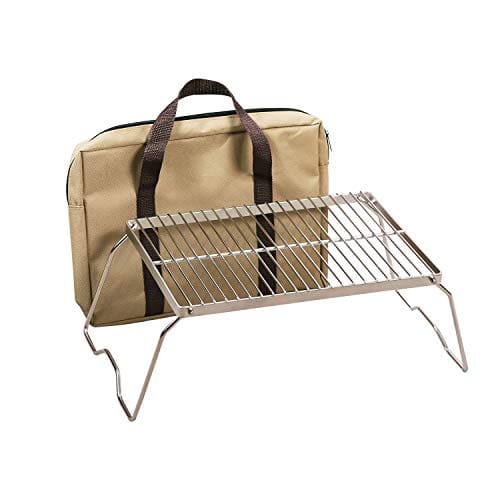How to select the best fuel for a tabletop grill?
This step-by-step guide will help you select the best fuel for your tabletop grill. Whether you’re a beginner or an experienced griller, understanding the different fuel options available and choosing the right one is crucial for achieving optimal results. With this guide, you’ll gain valuable insights on how to make the best fuel selection to enhance your grilling experience.
Top-Selling Tabletop Grills for Grilling Enthusiasts
Step 1: Determine the type of fuel your tabletop grill requires
To determine the type of fuel your tabletop grill requires, follow these steps:
- Check the manufacturer’s instructions or user manual: The first thing you should do is refer to the manufacturer’s instructions or your grill’s user manual. These documents will provide you with the necessary information about what type of fuel is recommended for your tabletop grill.
- Identify the recommended fuel options: Look for a section in the instructions or manual that specifically mentions the type of fuel your grill is compatible with. The most common fuel options are charcoal, propane, natural gas, or electricity.
- Consider the availability and convenience: Once you have identified the recommended fuel options, consider factors such as availability and convenience. For example, charcoal can be easily found in stores and may provide a traditional grilling experience, while propane is portable and offers quick start-up times. Natural gas requires a connection to a gas line and is ideal for grills used in a fixed location, while electric grills are suitable for indoor or outdoor use as long as you have access to an electrical outlet.
- Choose the fuel that suits your needs: Based on the information provided in the instructions or manual, select the fuel type that best fits your needs and preferences. Consider factors like taste, cooking time, cost, and ease of use.
Remember, it is crucial to follow the manufacturer’s recommendations to ensure safe and optimal performance of your tabletop grill.
Step 2: Consider the convenience and availability of the fuel
Consider the convenience and availability of the fuel when choosing the right option for your needs. Assess how easy it is to find the fuel you require and how convenient it will be to use. Remember, charcoal and propane are generally readily available, which makes them convenient options. On the other hand, natural gas and electricity may require specific setups or connections, so it’s essential to factor in these requirements.
To determine the availability of fuel, you should research the stores or suppliers near you and see if they carry the fuel you require. Additionally, consider the ease of access to these stores or suppliers. Charcoal and propane can usually be found in most grocery stores, home improvement stores, or even online. However, if you’re considering natural gas or electricity, you should evaluate whether your location has the necessary infrastructure and permits for these options. Check with local utility companies or seek professional advice to determine if these fuel sources are feasible for you.
Remember, convenience and availability are crucial factors to consider when selecting the fuel for your needs. By evaluating these aspects, you can ensure a hassle-free and uninterrupted grilling or cooking experience.
Step 3: Evaluate the flavor and cooking experience
When evaluating the flavor and cooking experience, it’s important to consider the different fuels available and how they can impact the taste of your food. If you prefer a classic smoky flavor, charcoal grills are the perfect choice. The smokiness from the charcoal adds a distinct aroma and flavor that can enhance the taste of your grilled meats and vegetables.
On the other hand, if precision and temperature control are your priorities, gas and electric grills are the way to go. These grills allow you to easily adjust and maintain the desired temperature, ensuring evenly cooked food every time. Gas grills provide the convenience of quick heat-up times and easy cleanup, while electric grills are often compact and ideal for indoor use.
Evaluate your preferences and the cooking experience you desire. Consider whether you prioritize the smoky flavor or precise temperature control. Understanding the characteristics of different fuel options will help you choose the right grill for your needs and ultimately enhance your grilling experience.
Step 4: Assess the cost and efficiency of the fuel
To assess the cost and efficiency of different fuel options for your grill, start by comparing the prices and burning rates of different fuels. Charcoal may seem like a cheaper option initially, but keep in mind that it burns faster than other fuels. This means you will need to keep replenishing it more frequently, resulting in higher long-term costs. On the other hand, propane and natural gas are typically more cost-effective in the long run, especially if you use your grill frequently.
To further illustrate this, let’s consider an example. Imagine you are planning a summer filled with barbecues and estimate that you will need to grill at least twice a week. If you opt for charcoal, you may need to refill your grill every three to four uses, and a bag of charcoal costs $10. Over the summer, assuming you use around 15 bags of charcoal, your total cost for fuel will be $150.
However, if you choose propane or natural gas, the cost calculation will be different. Let’s say a propane tank costs $20 to fill and lasts for approximately ten grill sessions. Over the summer, assuming you need to refill the tank six times, your total cost for fuel will be $120. Similarly, if you use natural gas, the gas bill might increase slightly, but it will still likely be more cost-effective than charcoal.
So, when assessing the cost and efficiency of fuel options for your grill, consider the initial price, burning rate, and long-term expenses. Propane and natural gas offer a more economical choice, especially for frequent grillers.
Step 5: Take safety into account
When it comes to choosing and handling fuel for your specific needs, safety should always be a top priority. Ensure that the fuel you choose aligns with safety requirements and precautions by following these instructions:
- Research and identify the appropriate fuel for your equipment or vehicle. Make sure to consider factors such as engine compatibility, efficiency, and any specific safety guidelines provided by the manufacturer.
- Read the safety instructions and guidelines provided by the fuel manufacturer or supplier. Familiarize yourself with any hazards, storage requirements, or special precautions concerning the fuel you will be using.
- Store fuel in a designated and well-ventilated area away from potential ignition sources. Ensure that containers are tightly sealed and labeled properly to avoid any confusion or accidental misuse.
- When handling fuel, always work in a well-ventilated area to minimize the risk of inhaling harmful vapors. Avoid smoking or using open flames in the vicinity of fuel storage or during fueling operations.
- Use appropriate protective gear, such as gloves and goggles, when handling fuel to protect your skin and eyes from potential contact or splashes.
- Avoid overfilling fuel containers or equipment, as this can lead to spillages or fuel leaks. Clean up any spills immediately using appropriate absorbents or containment methods.
- Finally, always have a fire extinguisher and an emergency safety plan in place, especially when dealing with flammable fuels. Be prepared to respond quickly and appropriately in case of accidents or emergencies.
By following these safety precautions and handling procedures, you can minimize the risk of accidents and ensure the safe use of fuel in your specific applications. Remember, safety should never be compromised when working with any type of fuel.
Step 6: Make your decision and purchase the appropriate fuel
- Evaluate your preferences: Consider the type of fuel you prefer to use for grilling. Options include propane, charcoal, natural gas, or electric. Each fuel type has its own advantages and characteristics, so choose based on what suits your taste and cooking style.
- Assess availability and cost: Research the availability of different fuel options in your area. Determine if there are sufficient supplies and if the cost fits within your budget. It’s important to have easy access to your chosen fuel and ensure that it is affordable for regular grilling sessions.
- Consider your cooking experience: If you’re a novice griller, you may want to opt for a fuel source that is easier to handle, such as propane or electric. These options require less skill to ignite and control the flame, making them more beginner-friendly. If you have more experience, you may prefer the flavor-enhancing properties of charcoal or natural gas.
- Factor in safety considerations: Safety is essential when selecting a fuel for your tabletop grill. Propane, natural gas, and electric fuels are generally considered safer options as they have built-in safety features. Ensure that you have proper ventilation when using any fuel indoors, and always follow the manufacturer’s instructions for safe handling and storage.
- Make an informed decision: Take all the factors mentioned above into account and make a decision based on what aligns with your preferences, availability, cost, cooking experience, and safety considerations.
- Purchase the appropriate fuel: Once you have decided on the best fuel for your tabletop grill, purchase the necessary fuel accordingly. Visit your local hardware store, supermarket, or online retailer to find the fuel type and brand that meets your requirements.
Remember, making an informed decision when choosing the right fuel for your tabletop grill will enhance your grilling experience and ensure successful culinary results.
Key Considerations for Fuel Selection
In conclusion, when selecting the best fuel for your tabletop grill, it is crucial to consider various factors. First, ensure that you understand your grill’s requirements to choose a fuel that is compatible and efficient. Convenience is also important, as some fuels are more readily available than others. Additionally, think about the flavor you want to achieve, as different fuels can impart distinct tastes to your grilled food. Cost is another factor to consider, as fuel prices vary. Above all, prioritize safety by selecting fuels that are appropriate for your grill and follow proper handling guidelines. Lastly, consider your personal preferences in terms of ease of use and environmental impact. By carefully weighing these factors, you can make an informed decision and enjoy optimal grilling experience with your tabletop grill.
